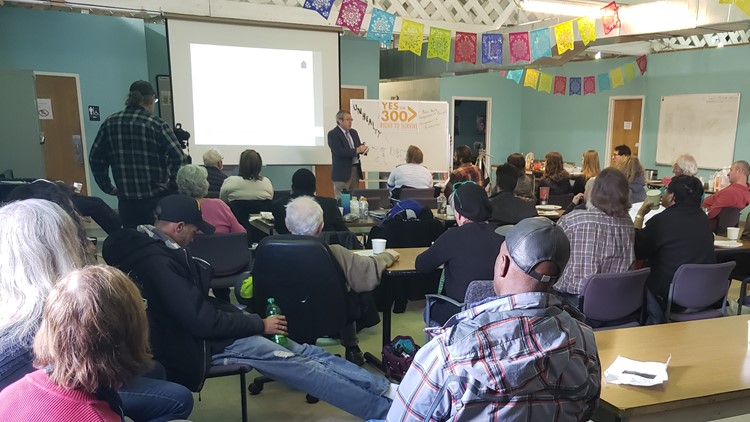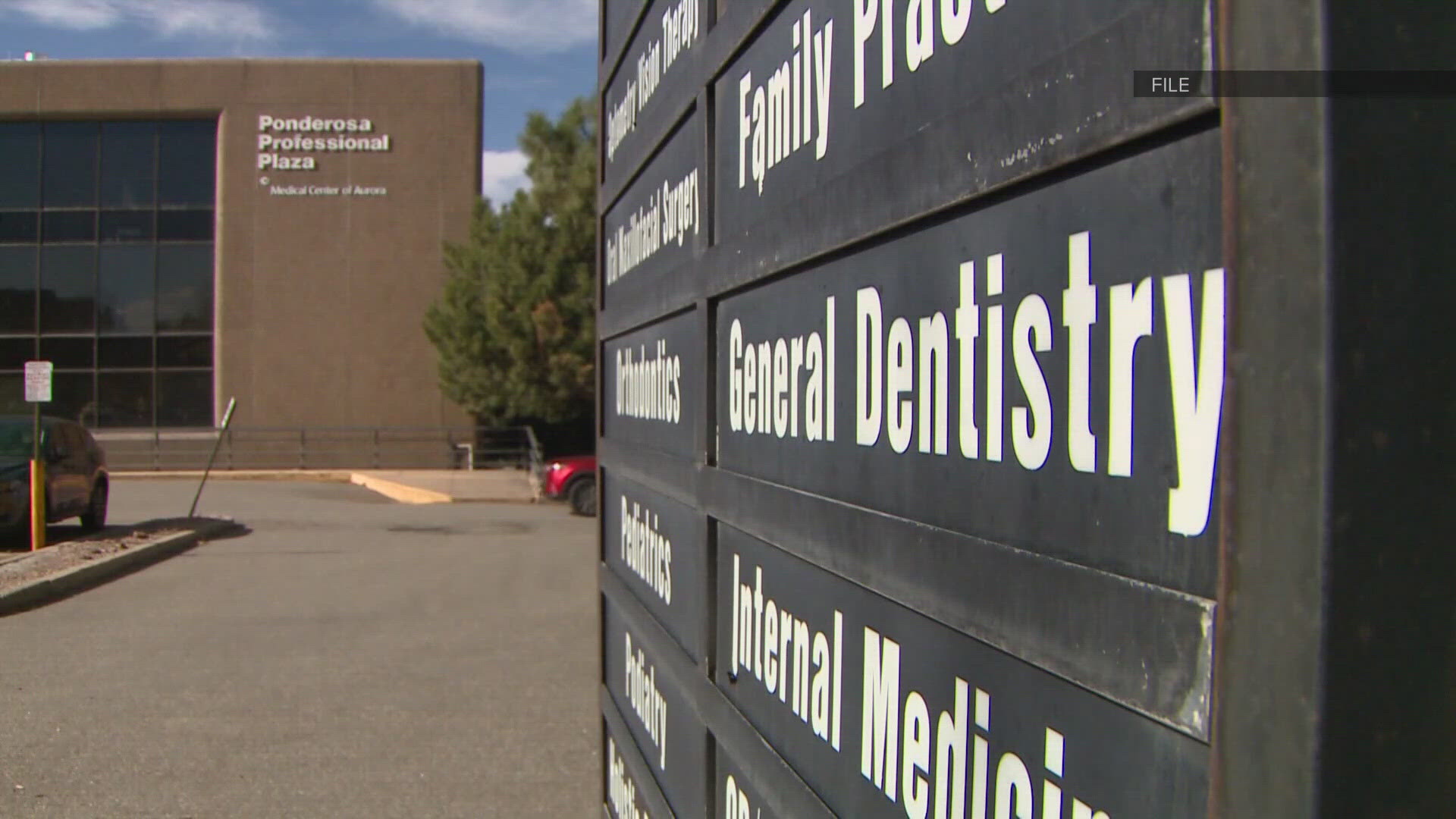DENVER — There's a big push right now to get Denverites to vote NO on Initiative 300.
That's the one you may have seen ads about on TV or in your mailbox.
If passed, It would end Denver's camping ban, letting the homeless set up camp in public places.
Those for the initiative - Denver Homeless Out Loud - said they have data that backs up their reason for wanting to end the camping ban.
Tony Robinson, a professor at the University of Denver, and Marisa Westbrook, who's getting her Ph.D. in public health at DU, said the data they spent four months collecting on nearly 500 homeless shows public health consequences of the city criminalizing homelessness.
“The point here is to get the reality of the persons on the streets out….based on hard evidence and data”, said Terese Howard with Denver Homeless Out Loud.
She said that six months ago they started surveying homeless people to learn how they feel they're treated under the city's current camping ban.
“'Nowhere is safe to sleep anymore. I don't sleep, I keep moving.' Seventy-four percent of the people we surveyed had been forced to move along by police,” said Howard.
If the initiative passes, homeless could sleep in public spaces, like parks and sidewalks as long as they are passable. If it if doesn't pass, the camping ban stays in effect.
"What we are doing to criminalize this is not working," Howard told 9NEWS. "It's making people's lives harder and more dangerous and less healthy.”
It's raising a different concern for others in the community, like business owner Nicole Thorpe.
“I don’t know what the answer is but I think voting yes to 300 is not the answer,” said Thorpe. “People can be living right in front of my house and there will be nothing I can do about it."
“This is aimed to satisfy one group's need to disrupt the system and I believe that is unfair,” said W. Bart Berger, one of the founders of the Denver Mountain Parks Foundation.
The homeless and their supporters say keeping them out of public areas is not the answer - and a vote for this initiative will at least help.
“It will never stop but it will put an extreme hindrance on it… the struggle on the street is real and that's going to be a reality no matter what,” said Howard.
One of the big points in the survey DHOL talked about is sleep deprivation.
The organization says 49 percent of those surveyed say they sleep in periods of two hours or less before they are interrupted.
The other side argues if they are allowed in the parks 24/7 then it won't be a place parents want to take their kids.
SUGGESTED VIDEOS | Local stories from 9NEWS



